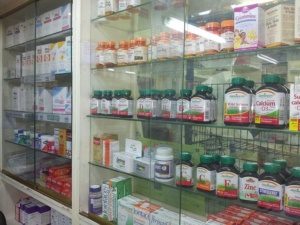Finding the Perfect Nutritionist: A Step-by-Step Guide
Adjusting your diet can be a sensible approach to alleviate symptoms like inflammation, pain, and the growth of endometriosis lesions. However, if your eating habits differ significantly from the recommended diet for endometriosis, consulting a nutritionist is essential to prevent potential health issues due to malnutrition and ensure you do not exacerbate your symptoms.
This guidance is especially crucial if you decide to transition to a vegetarian or vegan diet (learn more about this choice here), explore a gluten-free or gluten-reduced diet, or embark on the low FODMAP diet, whether for endometriosis management or due to intolerances and allergies. But how do you find the right nutritionist to assist you?
Choosing a Trustworthy Nutrition Expert
In Germany, the professional title “nutritionist” lacks legal protection, meaning that individuals who refer to themselves as “nutritionists” may not necessarily possess formal medical training. This designation is open to anyone, ranging from those who assert that french fries with mayo are a healthy choice to those who earn income by selling “health-promoting products” like dietary supplements. It also includes individuals with legitimate education or degrees in the field.
Finding a reliable and trustworthy nutrition expert can be challenging. Even some doctors supplement their income by selling nutritional products, potentially affecting the neutrality of their advice. So, how can you identify a nutritionist you can rely on?
When Can You Trust a Nutritionist?
The lines between a well-trained nutrition expert and a sales consultant can be blurry, as doctors and other medical professionals sometimes sell products they believe complement their expertise. A reputable nutritionist may offer product recommendations, but they should not directly sell those products. A trustworthy nutritionist functions primarily as a consultant, not a salesperson, and does not engage in referring clients to “affiliates” or “colleagues” with vested interests. Suppose they direct you to a specific store to purchase certain products; coincidentally, they happen to be in stock. In that case, it might signal a commission-based arrangement, which should be cautiously approached.
Here are a few criteria to consider when assessing whether a nutritionist prioritizes knowledge transfer over product sales:
- Do they sell products directly?
- Do they possess a scientific or medical education, such as certification from the German Medical Association?
- Are they certified nutritional physicians, oecotrophologists, or dietitians?
- Do their services qualify for full or partial coverage under statutory health insurance, especially within prevention programs or based on a doctor’s certificate of necessity?
- Are they recognized or affiliated with statutory health insurance providers?
It is important to note that not all criteria need to align perfectly. Some well-trained nutritionists may not work with statutory health insurance companies but offer valuable assistance. If you are uncertain, consider scheduling an initial consultation to gauge whether you feel comfortable and confident in their expertise before making a final decision.
Not all Nutritionists Are Equal
Not every nutritionist is well-versed in the intricacies of dietary adjustments for endometriosis. However, a qualified nutritionist is extensively trained to offer expert advice on a range of endometriosis-related nutritional issues, including irritable bowel syndrome, bloating, histamine sensitivity, and considerations for vegetarian or vegan diets. They are equipped to provide sustained support for making dietary changes tailored to your specific needs. Consider reaching out in advance to explain your concerns, allowing your prospective nutritionist to prepare thoroughly.
While it may require some travel if there is no qualified nutrition counseling in your immediate area, this is often the most appropriate and sensible approach to secure the assistance you need. After all, you would not visit an internist for endometriosis-related abdominal pain; choosing the right nutrition specialist can significantly impact your ability to address dietary concerns related to endometriosis effectively.
Finding the Right Nutritionist for You
If you are looking for a nutritionist tailored to your needs, consider checking the websites of the following professional associations, which can help you locate an expert near your location:
- Professional Association Oecotrophology (VDOE)
- Federal Association of German Nutrition Physicians e.V. (BDEM)
- German Society of Qualified Nutrition Therapists and Nutritionists e.V. (QUETHEB)
- Association for Nutrition and Dietetics e.V. (VFED)
- Association of Dieticians (VDD)
Once you have identified potential candidates, delve into the services offered by their practices. Do they exclusively provide one-on-one sessions, or are group sessions available? While group sessions might seem intimidating initially, they offer valuable opportunities to connect with individuals with similar concerns. These interactions can lead to shared experiences, setbacks, and successes that enhance your journey. Individual appointments also hold merit. The paramount consideration is that you feel at ease, well-supported, and confident that the guidance you receive is rooted in scientific knowledge rather than marketing strategies.
Active Participation in Nutritional Counseling
For successful nutritional counseling, it is essential not to accept advice passively but to actively engage, ask questions, experiment at home, and approach dietary changes with motivation. The role of the nutritionist is to guide how to make these changes, but the implementation lies in your hands.
Individualized, professionally sound nutrition advice cannot be substituted by online communities or well-intentioned suggestions from social media. Be cautious of individuals attempting to sell you products, such as vitamin tablets or nutritional supplements, under the guise of advice, whether online or offline. You can find further information on dietary supplements and their relation to endometriosis here.
Additionally, for long-term success, ongoing nutritional counseling is crucial. In the initial weeks, frequent, closely spaced weekly sessions can be valuable, transitioning to monthly or quarterly meetings as you become more adept at adhering to your new diet. The aim is to equip you with the necessary knowledge and understanding and support you until you can smoothly integrate your new dietary habits.
An accompanying nutritional consultation serves not only to prevent malnutrition and related health risks but also to identify any “slips” or “relapses” and gently guide you back on track.
Your body is unique and should be entrusted to medical professionals. After all, you take your car to a mechanic, not a salesman. We wish you every success on your journey!
- Finding the Perfect Nutritionist: A Step-by-Step Guide - 5. October 2023
- Does Monk’s Pepper Help with Endometriosis? - 5. October 2023
- A Brief Overview of Dietary Fats - 29. September 2023





